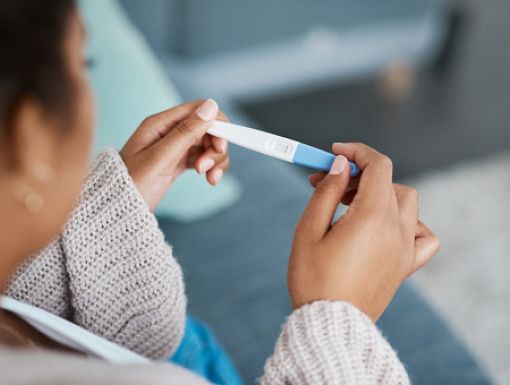
What Is the Best Way to Increase My Chances of Getting Pregnant?
Your Personal Roadmap: Journey to Motherhood
Planning our summer family vacation is one of my favorite things to do. Months ahead, time is spent researching the best sights and most authentic local restaurants to make the most of our holiday adventure. I can easily spend hours deep in research and preparation to plan for an exciting, immersive experience, sure to be packed full of memories.
Thinking about planning for epic adventures, it occurred to me that I should encourage my patients to plan and prepare with the same intensity for their own pregnancy journey. New motherhood is one of the most exciting and important road trips a human body will ever take. The motherhood journey is a journey traveled during pregnancy for nine months and even beyond into the first year as a new mom. In the ideal world, this deserves time and preparation. It is a long nine-month road trip for your baby in your uterus!
When should I start planning for pregnancy?
To prepare your body for pregnancy, it is important to improve your baseline health by ensuring you are getting proper nutrition, taking prenatal vitamins, managing stress, evaluating unhealthy habits and having a checkup by your OB/GYN. This process should start six to 12 months before you are ready to get pregnant to create the best environment for developing a growing baby inside of you.
What is evaluated during a pre-pregnancy appointment?
During the visit with your OB/GYN, they will conduct an overall health evaluation, covering topics such as:
- Medical history evaluation for diabetes, high blood pressure (hypertension) and obesity: People with diabetes, high blood pressure and obesity must take special precautions before conceiving and carrying a child and try to get these conditions under as best control as possible. If untreated, these diseases can affect a child’s development and can put your own health at risk during pregnancy. Your doctor will guide you on how to best control these conditions to help promote a healthy pregnancy.
- Mental health evaluation: Taking care of your mental and emotional health is just as important as your physical health when trying to get pregnant. Daily chronic stress and depression can affect the regularity of your periods or menstrual cycle because the stress hormone known as cortisol can disrupt the signal between the brain and the ovaries, causing hormone imbalance. Moving your body with exercise for 20 minutes a day and meditating or quieting the mind for 10 minutes a day can help reduce mental stress. Your doctor can also help with strategies to help improve mental health conditions.
- Medications:Your doctor will review your current medications to see if any have negative effects on getting pregnant and also talk about taking prenatal vitamins. Before getting pregnant, you should start a prenatal vitamin with folic acid. Taking at least 400 micrograms of folic acid for two months before conception can help prevent a birth defect called neural tube defects, which can cause spinal cord and brain defects. Incorporating vitamin D and omega-3 fatty acids into your routine with either vitamins or diet is important too. Vitamin D helps your immune system and improves placental function, which may decrease the risk of preterm delivery and preeclampsia (high blood pressure during pregnancy). Omega-3 fatty acids are an anti-inflammatory supplement essential for your baby’s brain development. Studies also show that omega-3s have been found to contribute to healthy ovulation. Those struggling with polycystic ovary syndrome (PCOS) may have blood sugar imbalances, and omega 3s can also help decrease insulin resistance and improve postpartum depression.
- Past pregnancy complications: If you have had trouble getting pregnant or have experienced other complications with pregnancies, you will want to make your doctor aware. They may suggest further testing and developing a game plan for this pregnancy to increase the odds of having a better outcome.
- Immunizations:Making sure you are up to date on all immunizations is important to ensure you have a healthy pregnancy.
Your doctor will also likely do bloodwork during this initial pre-pregnancy appointment. Screening the blood before pregnancy allows a doctor to identify conditions that can negatively impact your health or the health of the baby. Some things your doctor might evaluate for in the blood workup include:
- Screen for anemia, thyroid disease and diabetes
- STI screening: Screenings for sexually transmitted infections (STIs), such as HIV, hepatitis B and C, syphilis, chlamydia and gonorrhea, are important. Many of these are completely treatable, but if some STIs are left untreated, infections could cause infertility by moving up the reproductive system and spreading to the fallopian tubes, causing damage, scarring or inflammation.
- Genetic considerations: Your OB/GYN may recommend a preconception carrier screening. This blood test screening allows you to determine if you are a carrier for certain genetic disorders, even if you do not have any signs or symptoms. Common genetic disorders it evaluates include cystic fibrosis, sickle cell disease, thalassemia (an inherited blood disorder that causes your body to have less hemoglobin than normal), Tay-Sachs disease (a rare genetic disease), fragile X syndrome (a genetic disorder) and spinal muscular atrophy. While carrier screenings have traditionally been recommended for people at a higher risk of certain genetic disorders because of their family history, ethnic group or race, in recent years, it has become increasingly difficult to assign an individual to one particular ethnic group or race. We are a melting pot. Therefore, most carrier screenings are open to everyone. Typically, the mother is screened first. If there is a positive result, the partner will be tested for that disorder. If you had a carrier screening for a prior pregnancy, testing does not need to be repeated as it is part of your genetic makeup and does not change with each pregnancy.
- Vitamin D levels - Research suggests that vitamin D plays a significant role in female fertility. Healthy vitamin D levels are associated with higher odds of conception and may help support women undergoing fertility treatments.
What should I avoid if I am trying to get pregnant?
Take a personal inventory. Habits you should quit or reduce if you are trying to get pregnant include:
- Stop smoking. Smoking can reduce fertility, making it difficult to conceive. Smoking may negatively affect hormone production, and smoking and exposure to tobacco smoke can harm the reproductive system, including delaying the transport of the fertilized egg to the uterus for implantation.
- Limit alcohol consumption. Drinking alcohol during pregnancy can lead to birth defects, miscarriage and preterm births. Because you will not know you are pregnant for the first few weeks, the safest thing to do is to reduce alcohol intake if you’re trying for a baby.
- Stop taking illegal substances. Using illicit (illegal) or recreational drugs can cause fertility problems. If you or your partner take drugs, you may find it more difficult to get pregnant. Illegal or recreational drugs can create serious risks during pregnancy for yourself and the baby. Talk to your doctor if you need help with quitting.
- Take an inventory of your environment and the things you use daily to ensure they are safe. Chemicals are all around us; in the air we breathe, the products we use, the food we eat and the water we drink. It’s impossible to eliminate them all, but we can try to reduce our exposure. Take a close look at your home and surroundings. Many products these days have chemicals, including DDT, BPA, PCBs, and glyphosate, just to name a few. PCBs and DDT are chemicals that were banned more than 30 years ago, but despite decades of cleanup efforts, these chemicals continue to threaten our reproductive health. Today, food is one of the most likely exposure routes to PCBs. It is important to educate yourself, but the most important action is to keep it simple; for example, break out old fashion glass cups instead of using plastic. Small changes help.
Certain skin care products should be avoided. Those trying to become pregnant or are pregnant should avoid certain skincare products like Retin-A, retinol and retinyl palmitate. These vitamin A derivatives can lead to birth defects. While it’s important to have adequate vitamin A for your baby’s development, it’s best to avoid these products, which can negatively affect your baby’s development. View this list of other skincare products to avoid.
What should I eat if I am trying to get pregnant?
Maintaining a healthy diet is extremely important when trying to conceive. Choosing healthy fats, vegetable proteins and whole grains are all diet strategies that could help boost fertility. Striving for clean eating and avoiding highly processed foods is key.
One of the most interesting hot-button research topics lately is how your pre-pregnancy health and health during pregnancy may influence your child’s future health. Your health status preconception can influence the expression of certain genes in your children, affecting their risk for certain health issues later in life. This means that the mother’s diet before and during pregnancy could affect if genes are turned on or off, thus influencing their child’s health and the health of future generations! Sounds unbelievable, but this research is currently on going and something we will want to watch for years to come.
Try to incorporate the following:
- Seven 1/2 cup servings of fruits and veggies.
- Eat the rainbow -- especially greens!
- Make sure half your plate at each meal is veggies and fruits.
- Incorporate fish/seafood, lean meat or vegetable proteins such as chickpeas, lentils or tofu with each meal. A serving should be about the size of the palm of your hand or one fourth of your plate.
- Increase healthy fats, such as fresh avocados, olive or avocado oil, and walnuts. Fats should be at least a thumb size amount with each meal, or you can incorporate them as a snack. A great example is nuts. These fats can promote ovulation and fertility.
- Complex carbs (especially high fiber), such as sweet potatoes, beans, whole grains and buckwheat. It should be about a fourth of your plate.
Try to decrease:
- Sugars and starches. Foods that break down into sugars increase your insulin levels, affecting your hormones and decreasing ovulation, affecting fertility.
- Cut back on fried foods and eliminate sugary drinks.
- Watch the gluten. In gluten-sensitive patients, this can create inflammation.
If you are planning to get pregnant soon, be proactive and go over your personal checklist. Be honest with yourself and look at your daily habits of health. Be sure to schedule an appointment with an Ochsner OB/GYN or a medical provider to discuss your individualized health issues, needs and desires to increase your chances of experiencing a healthy pregnancy and healthy baby.
Make a road map and start now planning your best journey into motherhood!



